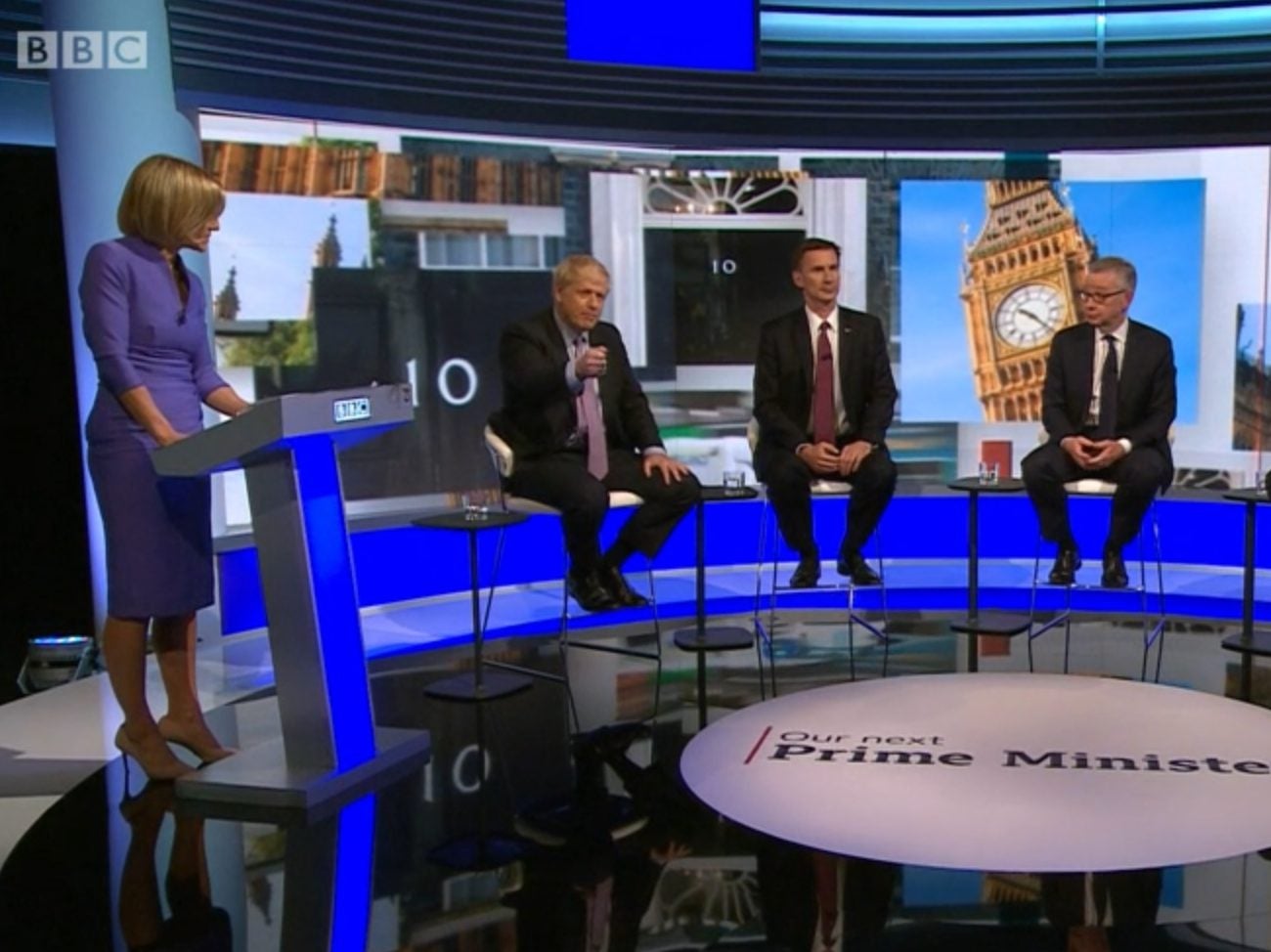
The Tory leadership debate broadcast on BBC One drew 31 complaints to Ofcom, the watchdog has said, and has prompted the corporation to consider “additional steps” in its vetting process for guests.
Our Next Prime Minister was watched by more than 5m viewers and the corporation said the hour-long broadcast from 8pm was the “best performing programme of the night across all channels”.
The complaints will be considered by the BBC in the first instance.
It is understood the majority were related to the programme over all, with just a few related to the selection of guests who asked questions.
An imam who asked the contenders about Islamophobia has been suspended from his mosque and duties at the school where he works amid controversy about his past comments on Israel.
Abdullah Patel has been criticised for past tweets in which he said “every political figure on the Zionist’s payroll is scaring the world about Corbyn”.
He also shared an image endorsing the relocation of Israel to the US as a way of solving the Israel/Palestine conflict.
Aman Thakar, who also asked a question of the would-be Tory leaders during the BBC debate, was found to have been a former Labour staffer and local election candidate but his affiliations were not mentioned on air.
The BBC has defended its vetting process, saying that such programmes are likely to attract politicised contributors and unified opinion on political broadcasts would be “odd”.
However, further action may be considered in any similar shows following criticism of the Tory leadership debate which aired on Tuesday.
The broadcast, hosted by Emily Maitlis, saw five hopefuls in the leadership race, including Boris Johnson and now-eliminated Rory Stewart, battle it out. The programme featured questions from members of the public who appeared on a large screen to quiz the leadership hopefuls.
A BBC spokesperson said: “This programme was an important contribution to the current political debate. It was watched by a big audience and the candidates to be the next Prime Minister were asked legitimate questions which our audience will have expected to have answered.
“We have a long history of producing successful debate programmes and this was no different. We did however, adopt a different format for this programme and we will look at whether there are additional steps we might take on vetting and transparency should we repeat it in the future.
“We of course have long established procedures for programmes that we make on a regular basis, and it is important to remember that a political debate programme involving members of the public will, by its very nature, attract people interested and engaged in issues who may well have been active in politics.
“It would be odd only to have programmes involving the public where everyone agrees with the politics of those they are questioning.”
Sky News had previously announced plans to host a live head-to-head debate with the final two candidates, revealed yesterday to be Johnson and Foreign Secretary Jeremy Hunt.
It will be hosted by Kay Burley, but the date has not yet been announced.
It has also been reported ITV News will host its own leadership debate, but details are not yet known.
The BBC has planned for the final two candidates to appear on a special edition of BBC Question Time, hosted by Fiona Bruce, where they will be “invited to put their case to an audience”.
They will then also face one-on-one interviews with Andrew Neil in separate broadcasts to take place within the voting period for Tory party members
Channel 4 hosted the first of the Tory leadership debates on Sunday reaching 1.3m viewers on average. Johnson was the only candidate not to attend and was represented by an empty lectern.
Picture: BBC/iPlayer
Email pged@pressgazette.co.uk to point out mistakes, provide story tips or send in a letter for publication on our "Letters Page" blog
